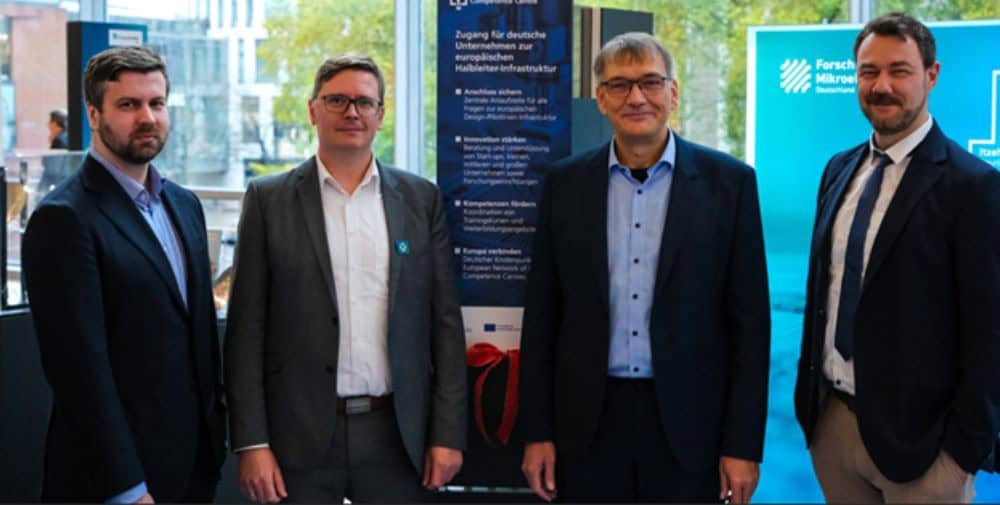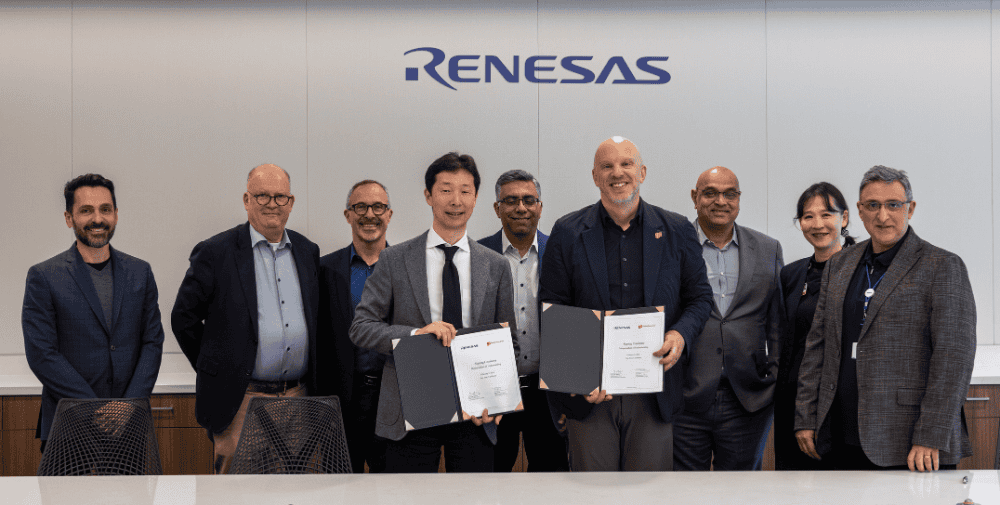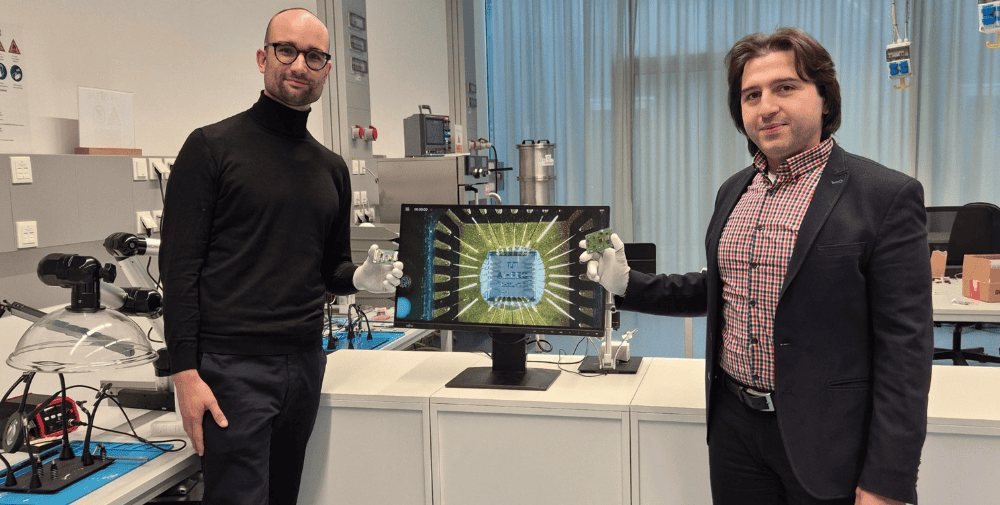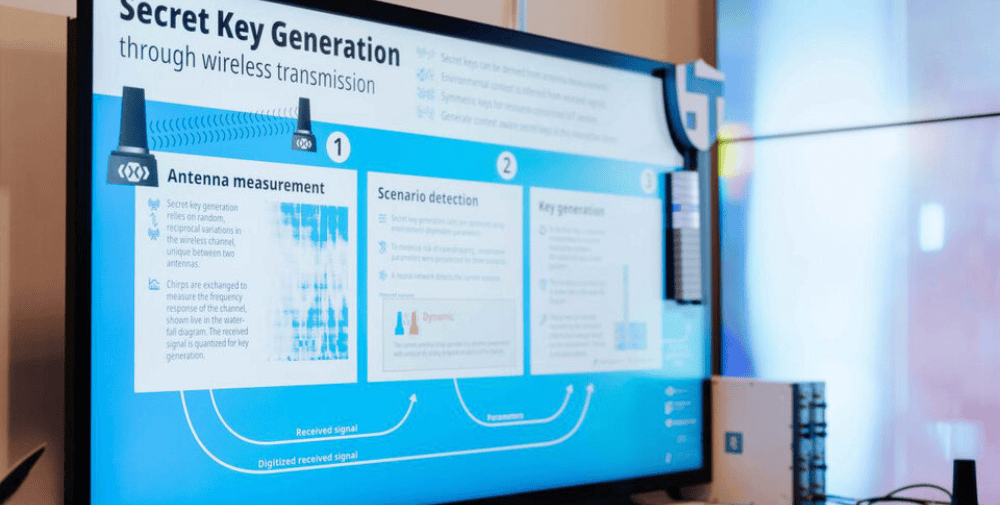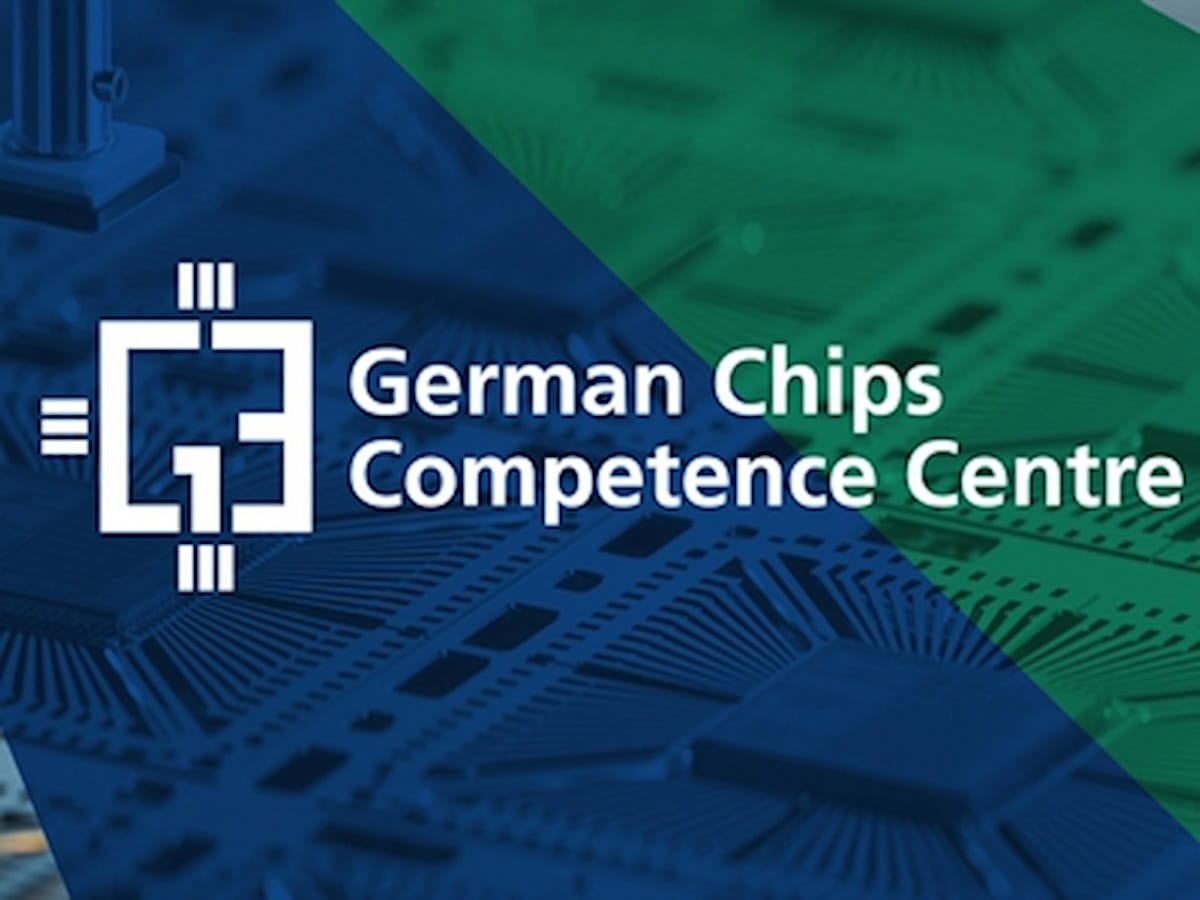
On October 28, 2025, the German Chips Competence Centre (G3C) was officially presented at the MicroSystem Technology Congress in Duisburg, with contributions from Dr. Stephan Guttowski (Managing Director of the FMD Business Office), Dr. Oliver Höing (consultant at BMFTR), Alexander Stanitzki (G3C project manager) and Dr. Björn Lekitsch (co-founder and CTO of neQxt).
The EU Chips Act focuses on the creation of Chips Competence Centres across Europe to complement the development of European pilot lines. Together, they form the backbone of European efforts to bring research and industry closer together. The G3C serves as a German access point within this pan-European network and strengthens Europe’s competitiveness and innovation potential.
“Europe is currently shaping the future of its semiconductor industry. With the G3C, Germany is demonstrating its expertise and promoting the transfer of German know-how and technology throughout Europe,” emphasizes Matthias Hauer, Parliamentary State Secretary at the BMFTR.
Access for companies, research institutions and start-ups
The G3C supports start-ups, SMEs and established companies based in Germany in accessing the European design and pilot line infrastructure for key technologies such as advanced packaging, photonic integrated circuits, FD-SOI and wide bandgap semiconductors. The aim is to reduce barriers to innovation and accelerate market entry, especially for companies with limited access to complex development and test environments.
“With the G3C, we are building a bridge between the German innovation community and the European chip infrastructure, which covers both chip design and manufacturing. For SMEs and start-ups in particular, this means easier prototype development, faster scaling from the lab to series production and earlier market access. The G3C thus strengthens their chances of success on the global markets. Looking ahead, the introduction of hands-on training and education initiatives will help develop much-needed expertise across the semiconductor sector,” explains Alexander Stanitzki, G3C project manager.
As Germany’s national gateway, the G3C pools information on the full range of European design and manufacturing capabilities, offers advice on how to use them and coordinates training and education programs. It acts as a coordination point that coordinates with other European Chips Competence Centres and ensures that relevant infrastructures and services are accessible across national borders.
“For start-ups like ours, the G3C represents significant added value,” affirms Dr. Björn Lekitsch, co-founder and CTO of neQxt. “We hope that the Chips Competence Center will give us access to resources and enable easier, more effective networking with key technology partners, allowing us to accelerate our development projects. For neQxt, this strengthens our competitive position and supports earlier market entry for our upcoming product portfolio.”
Increase visibility and deepen coordination in Europe
The G3C, established under the EU Chips Act, strengthens Europe’s technological resilience and supports the growth of a competitive semiconductor industry. In addition to providing technological support, it assumes a strategic liaison function by representing the German semiconductor ecosystem at European level, ensuring international visibility and contributing national expertise to the European Network of Chips Competence Centres (ENCCC).
“An important part of the mission is the close cooperation with established structures such as the APECS pilot line,” explains Dr. Stephan Guttowski, Head of FMC’s Semiconductor Competence Centre. Stephan Guttowski, Head of the FMD Business Office, and adds: “The G3C is also in contact with other pilot lines – FAMES, NanoIC, PIXEurope and WBG – to promote synergies along the entire microelectronics value chain.”
The G3C thus creates an end-to-end system that provides industry with access to everything it needs to innovate.
Strengthening Germany as a semiconductor location
Thanks to the G3C, Germany now has centralized access to Europe’s most advanced semiconductor infrastructure. By pooling knowledge, promoting partnerships and opening up new avenues for research and innovation, the G3C strengthens Germany’s innovation potential, competitiveness and international visibility as a semiconductor location.
The G3C is being funded with 7.9 million euros over a project duration of four years.
About the Research Fab Microelectronics (FMD)
The FMD is a cooperation between 13 Fraunhofer Institutes and the two Leibniz Institutes FBH and IHP. It serves as a central point of contact for all questions relating to microelectronic and nanoelectronic research and development in Germany and Europe. As a one-stop store, the FMD bundles advanced technologies and system solutions from its cooperating institutes and offers a customized, comprehensive portfolio. This joint research collaboration, established in 2017 within FMD’s common virtual framework, has grown into one of the largest of its kind and now comprises more than 5,400 employees and a uniquely broad range of expertise and infrastructure.
About the APECS pilot line
As part of the EU Chips Act, FMD is implementing APECS, a comprehensive pilot line to support resilient and trustworthy heterogeneous systems in the coming years. The APECS pilot line strengthens the innovative capacity of European industry in various sectors and serves as an important foundation for Europe’s technological resilience. Through System Technology Co-Optimization (STCO), APECS introduces new features and provides seamless design-to-production capabilities that facilitate the transition from research breakthroughs to scalable manufacturing solutions. As a one-stop shop, APECS serves stakeholders from virtually every industry, including large enterprises, SMEs and start-ups. This pilot line brings together the expertise, infrastructure and know-how of ten partners from eight European countries. In Germany, twelve institutes of the Fraunhofer-Gesellschaft and two institutes of the Leibniz Association are participating in APECS. APECS is coordinated by the Fraunhofer-Gesellschaft and implemented by FMD, a cooperation between the Fraunhofer Group for Microelectronics and the Leibniz Institutes IHP and FBH.
– – – – – –
Further links
👉 www.forschungsfabrik-mikroelektronik.de
👉 www.apecs.eu
Photo: Fraunhofer Microelectronics
